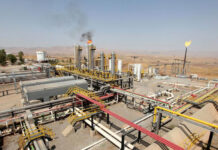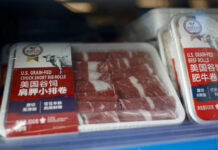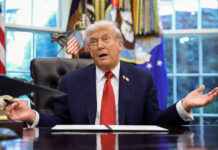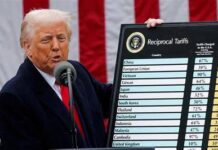
President Donald Trump announced Wednesday that the United States will impose a 15% tariff on South Korean imports, down from a previously threatened 25%, as part of a wide-ranging trade agreement that aims to defuse mounting tensions with one of America’s key Asian allies.
The deal was unveiled following high-level talks at the White House with South Korean officials, ahead of Trump’s self-imposed August 1 deadline for new tariffs on a range of countries. The agreement offers relief to South Korea, a major exporter of cars, semiconductors, and steel, which had faced the prospect of steep penalties.
“I am pleased to announce that the United States of America has agreed to a Full and Complete Trade Deal with the Republic of Korea,” Trump posted on Truth Social, hailing the pact as a victory for both sides.
As part of the agreement, South Korea committed to invest $350 billion in U.S. industries and purchase $100 billion worth of American energy products, including LNG, LPG, and crude oil, over the next 3.5 years. Trump also claimed that South Korea will remove all duties on U.S. autos and agricultural products, although Korean officials clarified that rice and beef markets remain protected, with food safety discussions ongoing.
The trade deal is an early diplomatic test for South Korea’s new President Lee Jae Myung, who took office in June after a snap election. “We have crossed a big hurdle,” Lee said in a Facebook post, calling the agreement a stabilizing force for the country’s export-reliant economy. He is expected to visit Washington within two weeks.
Details of the investment plan remain murky. Of the $350 billion, $150 billion is earmarked for shipbuilding partnerships, while $200 billion will target semiconductors, nuclear energy, batteries, and biotechnology. Officials from both sides acknowledged that existing corporate investments would be counted toward the total.
“Ambiguity is good,” said Kim Yong-beom, policy chief from South Korea’s presidential office, who stressed that safeguards would be in place to oversee the use of funds. U.S. Commerce Secretary Howard Lutnick stated on X that 90% of the deal’s profits would “go to the American people,” a claim South Korea interpreted to mean reinvestment in the U.S.
South Korean firms were quick to align with the new trade climate. Samsung Electronics signed a $16.5 billion chip supply deal with Tesla, while LG Energy Solution secured a $4.3 billion agreement to provide energy storage batteries to the automaker.
Notably, the new tariff deal excludes key South Korean exports such as steel, aluminum, and copper. However, it ensures that semiconductors and pharmaceuticals won’t face harsher treatment than those from other countries, a crucial point for Korea’s tech-heavy economy.
The agreement follows similar deals struck with Japan and comes amid political turmoil in Seoul, where former President Yoon Suk Yeol was impeached in April. South Korea, which posted a $55.7 billion trade surplus with the U.S. last year, had faced growing pressure as Trump renewed demands over defense costs and trade imbalances.
Former trade minister Cheong In-kyo summarized the sentiment in Seoul: “We avoided the worst and chose the next best. Much will depend on how the investments unfold.”
Written By Rodney Mbua

















